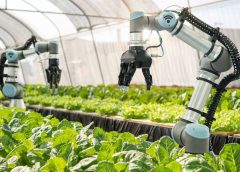Automation has revolutionized the way industries function, making processes faster, more efficient, and cost-effective. With advancements in technology, automation has become an integral part of various industries, bringing about significant changes in their operations and outputs. Which industries benefit the most from automation? Find out below.
Manufacturing
The manufacturing industry has witnessed a remarkable transformation with the adoption of automated machinery and robots. These technological advancements have increased productivity, reduced production costs, and improved product quality. With the ability to operate 24/7 without breaks or fatigue, automation has made mass production more efficient, meeting the ever-rising demands of consumers. Additionally, automation has enabled manufacturers to implement lean manufacturing principles, optimizing resource utilization and minimizing waste.
Mining
Automation has played a vital role in the mining industry, particularly in terms of safety and productivity. Automated machinery has enabled the extraction of resources from deep underground with minimal human involvement, reducing the risk of accidents and improving worker safety. The history of the hard rock mining industry is an interesting one, but one common characteristic that hasn’t changed is how labor-intensive it is. With the increasing use of automation, mining projects can achieve the same success without putting people in harm’s way.
Additionally, automation has enhanced the efficiency of ore processing, leading to higher yields and cost savings. By utilizing advanced technologies, such as autonomous drilling and remote monitoring systems, mining companies can optimize their operations, reduce downtime, and increase profitability.
Healthcare
Automation has had a profound impact on the healthcare industry, enhancing patient care, diagnosis, and treatment. Automated machines allow medical procedures to be less invasive and more precise, reducing the risk of human error. Furthermore, automation has facilitated the analysis of large amounts of patient data, enabling healthcare professionals to make faster and more accurate decisions. This speed and precision have led to improved disease detection and prevention, ultimately saving lives, and improving overall healthcare outcomes.
Agriculture
Automation has revolutionized the agriculture industry by increasing efficiency, reducing labor costs, and improving crop yields. The introduction of automated machinery, such as tractors and harvesters, has made farming more productive and less labor-intensive. Additionally, automated irrigation systems and sensors have helped farmers optimize water usage, resulting in significant resource savings and environmental conservation. With precision agriculture techniques, automation has enabled farmers to monitor crop health, detect diseases, and apply targeted treatments, leading to improved yields and quality.
Technology continues to transform how we build, grow, and do things, offering multiple benefits in today’s market. While some industries benefit the most from automation, this technology will play an even more significant role in shaping the future of all industries worldwide. Businesses must embrace automation to stay competitive, drive innovation, and thrive in today’s fast-paced and ever-evolving world.





